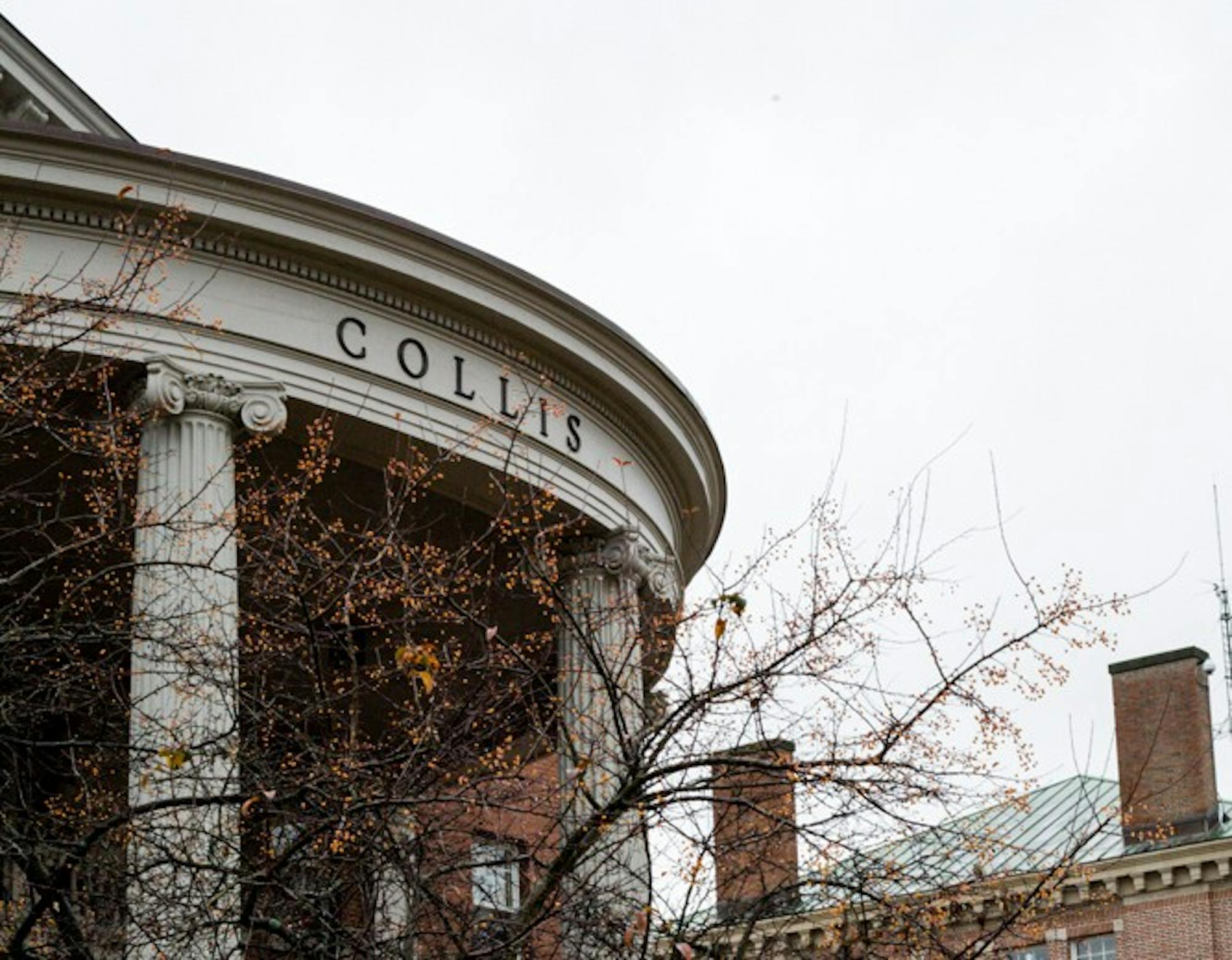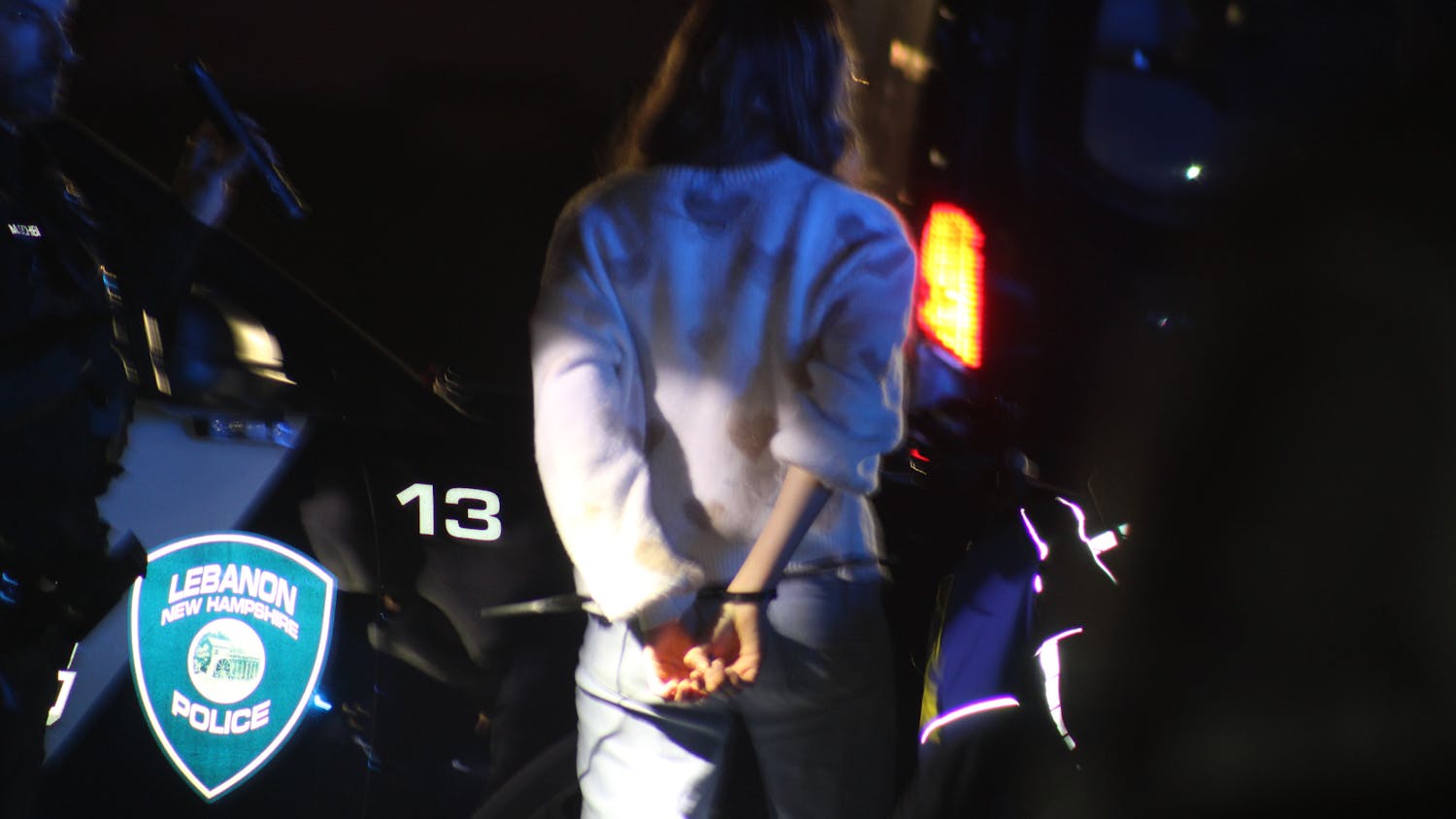On May 12, the Dartmouth Student Government Senate met for its seventh weekly meeting of the spring term. Led by student body president Jessica Chiriboga ’24, the Senate and members of the student body discussed the student body referendum on no confidence in College President Sian Leah Beilock’s leadership. Several people said they or their friends had felt pressured by students in support of no confidence to also vote no confidence.
The Senate passed the resolution to hold a campus-wide referendum on no confidence on May 7, according to a May 8 email from DSG to the student body. The vote, which began on May 9 and will close on May 15, responds to the May 1 pro-Palestinian protest and is “advisory” and anonymous.
Students, regardless of their D-Plan, are able to select “I have no confidence in President Beilock’s leadership” or “I do not support a motion of no confidence in President Beilock’s leadership.”
Chabad president Mia Steinberg ’25 said she encountered a group of students tabling in the Class of 1953 Commons who gave “very simplified” and “very biased” descriptions of the arrests on May 1 that were “jarring to hear.”
Steinberg said she believes it “absolutely should be right” for students to campaign for the no-confidence vote. However, she said the students tabling in ’53 Commons “crossed the line” because the dining hall “is a neutral space on campus,” adding that she found the tabling “disturbing.” When she tried to confirm at the Collis Center’s front desk that the students were registered to table, she said she was told there was “nothing [Collis staff] could do” because the students were tabling on behalf of Spare Rib, a feminist magazine.
“I think that’s an abuse of what these organizations do,” Steinberg said. “[The students who were tabling] are co-opting a club that has nothing to do with [the vote of no confidence] and making that the [club’s] cause.”
Steinberg said she has also recently felt “uncomfortable” in Robinson Hall — where many student-led organizations are based — because there are Palestinian flags and pro-Palestinian signs with slogans such as “divest from Israel” and “end the apartheid.” As a result, she has been “going less” to the Dartmouth Outing Club, one of the student organizations housed in Robinson Hall. She added that she has heard from other people who have also chosen to “take a step back” from the DOC due to the “decorations” and “this rhetoric” in the club’s GroupMe.
West House senator Crawford Hovis ’25 said one of his friends was recently asked if he “had voted no confidence yet” by a group of students advocating for no confidence in Novack Cafe. After his friend said he had not, the students began “checking to see what his ID [information] was.”
“We didn’t expect [voter suppression tactics] to happen when we decided to do the referendum, but if I could go back I would push harder against the referendum [after] seeing the way some people are being treated on campus now,” Hovis said.
Oren Poleshuck-Kinel ’26 said he believes the “whole idea of a referendum” is “problematic” because “the majority of Jewish students are grateful for Beilock’s actions to protect them.”
“If 90% of the campus votes against Beilock [but] all 10% of Jewish students vote for her, that means Beilock did the right thing,” he said. “The right action is not always the most popular one.”
Town affairs liaison Nicolás Macri ’24 said he believes the “purpose” of the referendum is to allow students to “digitally” and “anonymously” voice their opinions.
“I would encourage everyone, including those who are opposed to no confidence … to please vote because that way we know what you think,” he said. “We [the Senate] can’t just keep guessing.”
Steinberg also said she finds it “concerning” that “pro-Beilock” and “Jewish” are “becoming more synonymous” with regard to the vote of no confidence. Conflating the two terms “[puts] Jewish students into a bucket,” even though support for Beilock in the Jewish community is not “across the board,” she said. Nonetheless, she said it is significant that “a majority of Jewish students” oppose the vote of no confidence.
“I think [DSG] should think more about what that means and why a specific minority group on campus feels so overwhelmingly in one way,” she said.
Chiriboga asked the Senate and members of the student body if they had a “preference” for advocating for suspension of classes for a day or “intentional” weekend programming “related to engaging in dialogue across difference and addressing wellness and providing resources.”
Hovis said days off from classes sometimes have the “inverse effect” because X-hours are used to replace the lost class time. North Park House senator Sydney O’Connor ’27 suggested any discussions about the May 1 protest should be led by Jewish studies and Middle Eastern studies professors so that students would be “not afraid to voice opinions.”
Steinberg, however, said she was concerned that “faculty have not been hearing Jewish students.” She suggested that the Senate should provide an opportunity for students to share their opinions with faculty.
The Senate discussed ways to improve the referendum process.
School House senator Roger Friedlander ’27 said he has seen supporters of the no confidence vote share “talking points” that the Senate “[knows] … to be false.” He advocated for DSG to “make sure” students have “as much accurate information as they can possibly have” to inform their referendum vote.
North Park House senator Sabik Jawad ’26 also advocated for the Senate to improve future referendums by “setting standards” with the Elections Planning and Advisory Committee — a student-run committee that oversees campus-wide elections — and “punitive measures” for those who violate the standards. In a statement to The Dartmouth after the meeting, Jawad said the standards would be “similar to the ones student body candidates follow.”
No members of the student body spoke out against Beilock at the meeting. DSG Senate meetings occur weekly on Sundays at 7 p.m. in Collis 101 and are open to all students.




